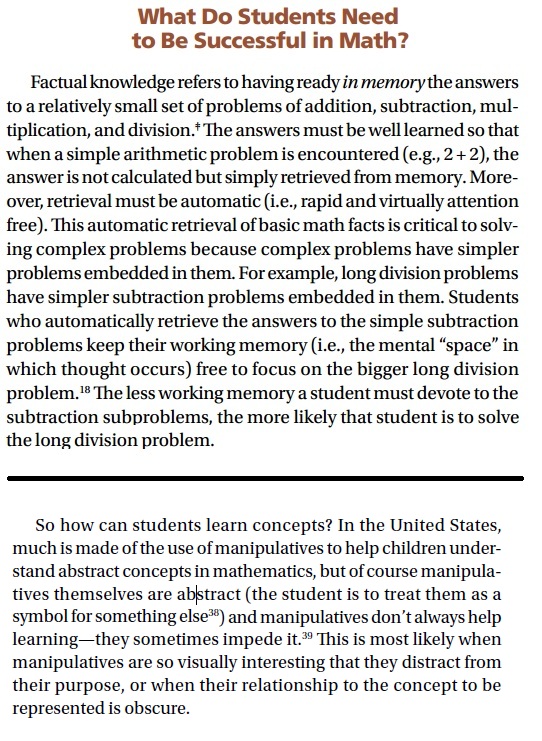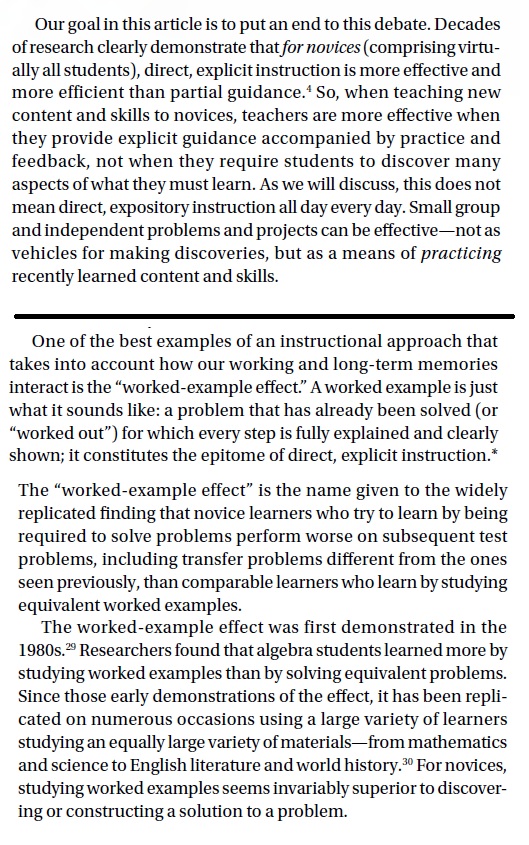
Excerpted from Is It True That Some People Just Can’t Do Math?

Excerpted from Is It True That Some People Just Can’t Do Math?
The Case For Fully Guided Instruction


Silicon Valley School That Doesn’t Compute

- Studies have found that roughly 40 percent of students planning engineering and science majors end up switching to other subjects or failing to get any degree.
- Professors also say they are strict because science and engineering courses build on one another, and a student who fails to absorb the key lessons in one class will flounder in the next.


Here’s a link to a article that is a follow-up to the famous Marshmallow study of the 1960s. Turns out, you can correlate SAT score and the ability to save for retirement as early as age two! Both require: delayed gratification, self-control, discipline, obedience, etc.
According to Mischel, this view of will power also helps explain why the marshmallow task is such a powerfully predictive test. “If you can deal with hot emotions, then you can study for the S.A.T. instead of watching television,” Mischel says. “And you can save more money for retirement. It’s not just about marshmallows.”